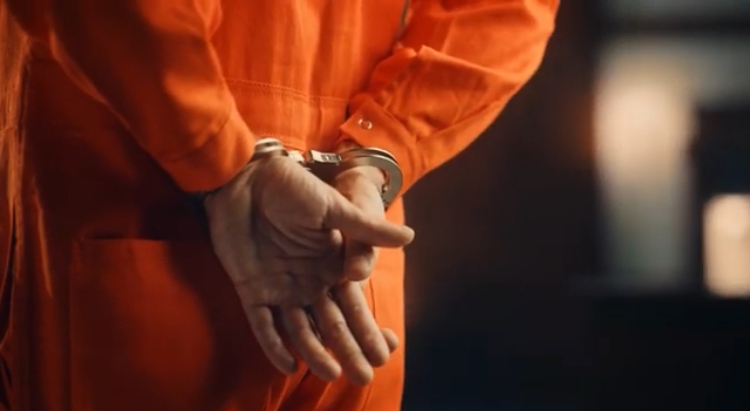Sam Kaner talks about experiences of racialization as a person of mixed heritage
‘You’re basically white’
A phrase I frequently heard from white students at my school. They would tell me this after I had crossed a particular threshold in my relationship with them where their racialization of me as Other would soften. It was the point at which they questioned whether they should confer the same amount of respect to me as their white friends, operating under the assumption that being a light-skinned biracial person, I would receive their newfound perception of me as a compliment.
I recently fell into an argument with a white person because they had insisted to me that Mariah Carey couldn’t be black; she didn’t look black, she wouldn’t be racialized as black, and therefore, she should stop claiming to be something she’s not.
I find it concerning how white people will repeatedly make attempts to determine and declare who may claim blackness and who may not; and I wonder, in doing so, if they have ever instead critically considered how this interjection recalls the colonial imposition of blackness as something non-negotiable and as a marker of subjugation.

Blackness isn’t something over which there has always been agency. Mariah Carey, Rashida Jones, Wentworth Miller, or any other light-skinned, somewhat white-passing American celebrity, were all born in a very particular political, historical, legal and demographic context, each growing up, for example, prior to US census changes to allow for self-declaration as biracial.
The vestiges of various hierarchical systems of racialization, arising and developing in concurrence with the Transatlantic Slave Trade, exist in the cultural memory of many of us whose African ancestors were uprooted, trafficked and subjected to the greatest and most atrocious forced displacement, genocide and dehumanisation in modern history.
The ‘one-drop-rule’, as a particular legal and social concept at the time of slavery, where any traceable African ancestry could mean the legal status of a slave, depending on which parent had this lineage, was unique to the US. But the denial of effective citizenship, or more accurately humanity, on the basis of descent, was pervasive. Terms such as ‘Quadroon’ or ‘Octoroon’, for example, used to classify those with either a quarter or an eighth traceable African ancestry, were borrowed from Spanish, had French and Portuguese equivalents, and were used elsewhere in the Americas.
Furthermore, an additional layer of complication develops when all of this is considered in a diasporic context. My grandfather was a relatively light-skinned, middle-class Jamaican who aligned himself with Britishness, fought in the Royal Air Force in the Second World War, and expressed offence at being called ‘black’. He migrated to the UK in the 1950s. But despite having received much formal education in Jamaica, he could only find employment as a janitor.
It didn’t matter how he self-identified, with which racial category and with which global political and cultural body he aligned himself, because his accent, his phenotype, his migrant status, the collective markers of his slave-descended ancestry, would act as sufficient cause for his dehumanisation and the disavowal of his citizenship. The doors of any establishment, upon which the words, ‘No Dogs, No Irish, No Blacks’ were printed, would not somehow open up to him because his self-description differed from that assigned to him by white British society; my mother grew up with the word ‘nigger’ spray-painted across the walls of her house, a designation which would, in turn, block her admittance into white society.

Trauma is transmitted generationally. And this doesn’t simply happen within the confines of a familial context. African chattel slavery was a systemic, globalised means to deny forcibly homogenised ethnic groups their humanity. It was a collection of multiple genocide and multiple ethnocide events. The white supremacist conception of human organisation and human faculty which it entrenched has had such deep structural effects that its devastation is continuously reinforced by racist sentiments, institutions and culturally pervasive aggressions, and by the destructive role which colonialism and neo-colonialism continue to play in our recent and distant countries of origin.
It’s difficult to ‘get over it’ when reconciliation is made impossible by persistent denigration. Black history is erased, distorted and de-legitimised by the collective dictates of anti-black structures, whose appeasements consist of, at most, the foregrounding of a few chosen, deemed nonviolent and non-radical figures. Structural organisation prevents any kind of reclamation of black narratives and white people continue to eschew responsibility, collectively suppressing complicity from their cultural memory.
None of this is to say that tremendous privilege isn’t conferred upon those who are light-skinned or white-passing, and white-passing biracial slaves were in fact used in the Abolitionist movement to garner sympathy from white Americans. In much of the Anglo-Caribbean being light-skinned facilitated entry into a higher socioeconomic status.
Moreover, the force with which racism is imposed upon me, as someone who is biracial, and who benefits from a number of consequent privileges, is greatly reduced. I am forced to address painful elements of my history less frequently than those with darker skin, and I am less constantly ostracised and perceived as a subject and object of violence and fear. There are a number of black experiences which I cannot even begin to understand, and should not claim to, and I refrain from unequivocally calling myself black because of this.

But light-skinned privilege is not the same as white privilege, and we too are subject to anti-blackness and racialization in ways which may limit our material and societal access. We exist because of the history I describe and we are conditioned in the social environments which have arisen out of this history. To deny me the right to my own identity and to do the same to others, tells me that my affiliation with aspects of my heritage, over which I pride myself and which have been instrumental to my own personal construction, are somehow wrong, unimportant or undesirable.
When a white person tells me ‘you’re basically white’, what I really hear is repudiation for wanting to identify with blackness. When my own racial integrity is undermined with this statement, I am told that I should allow myself to be classified by the oppressor. When the history of my ancestors is erased, I ask myself why I should not be allowed to explore the entirety of my history whilst white people alter theirs to pander to their own self-denial. And I fail to understand why they will tell me that I am ‘basically white’ sometimes, but implicitly or explicitly emphasise that I’m ‘brown’ the next.
If black people want to have internal discussions about whether or not it is appropriate for people who look like me to claim certain words, identities and experiences, then accept that this is a matter for them.

If you enjoyed this, and want more like it, then please consider making a donation, it can be anything from £2 and takes no time at all. Or give what you can afford from £2 per month and become an MD member.
Sam Kaner is currently an undergraduate student in Human Sciences at the University of Oxford. As a writer their interests are diverse and include contemporary trans politics, the history of racialisation, and localised constructions of gender. They also produce visual art dealing with personal subjects, primarily gender dysphoria, which may be found attheycannot.blogspot.co.uk
All work published on MD is the intellectual property of its creators, and requires permission to be republished. Contact us if you have any questions.










Leave a comment